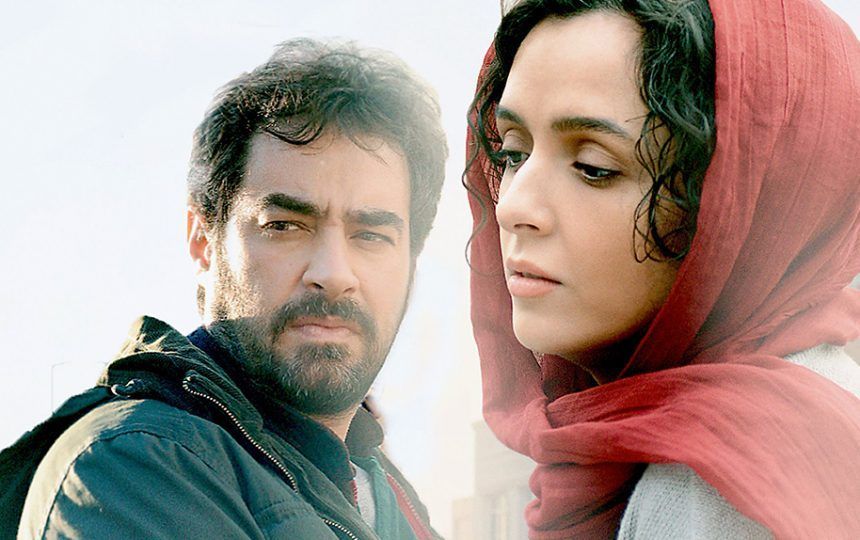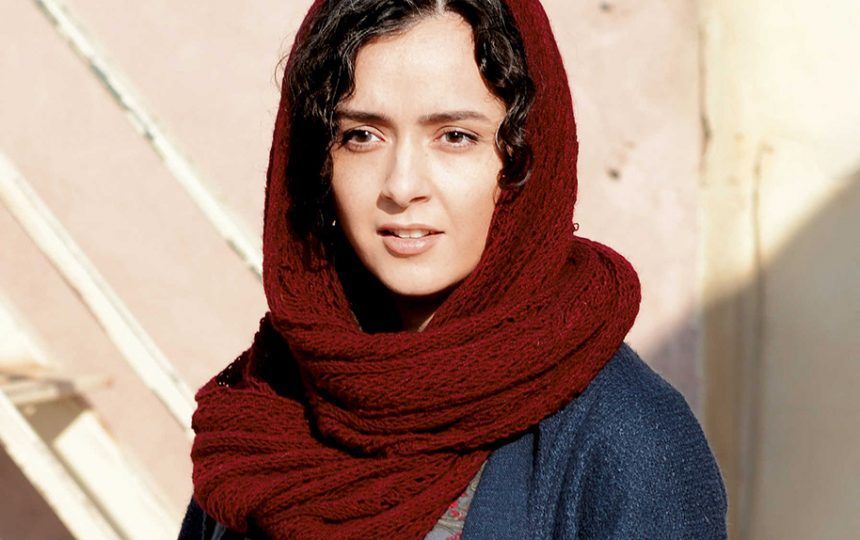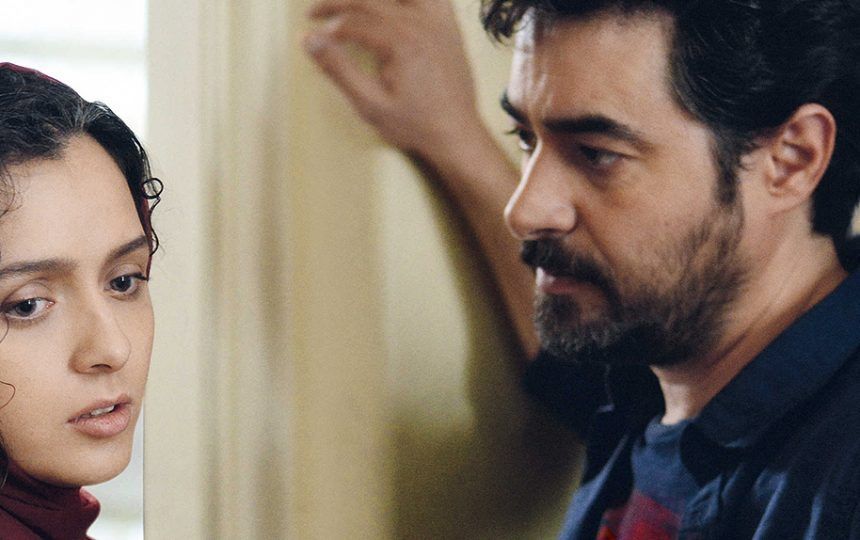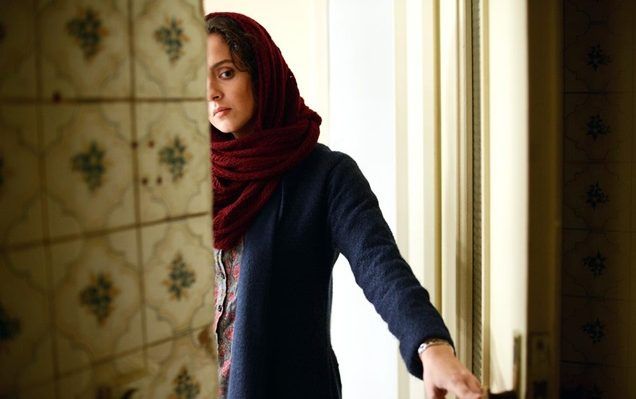Though he boycotted Hollywood’s annual Awards Ceremony, Tehran-based film director Asghar Farhadi has repeated history, clinching a second Best Foreign Language Film Oscar for “The Salesman” five years after he became the first Iranian to win a prestigious Academy Award for his 2012 drama “A Separation.”
Two Iranian-Americans – an engineer and a former NASA scientist and first female space tourist, Anousheh Ansari, accompanied on stage by Dr. Firouz Naderi, a former Nasa Director and Iranian – represented Farhadi at the ceremony.
Anousheh Ansari read a statement on his behalf: “My absence is out of respect for the people of my country and those of the other six nations who have been disrespected by the inhumane law that bans entry of immigrants to the U.S.”
“Dividing the world into the ‘us’ and ‘our enemies’ categories creates fear, a deceitful justification for aggression and war,” Ansari said, reading from Farhadi’s statement.
Only hours before the announcement in Los Angeles, Farhadi addressed some 10,000 people who had packed London’s Trafalgar Square on Sunday afternoon for a free screening of his new drama.
“The Salesman” tells the story of a quiet married couple whose relationship is pushed to the brink after the wife is attacked while alone in their Tehran apartment, and the husband goes to extreme lengths to seek revenge.
At the same time, the couple is appearing in a local production of Arthur Miller’s play “Death of a Salesman,” and elements of the work mirror their fraught lives.
The four other contenders for the prize were: “Land of Mine” (Denmark), “A Man Called Ove” (Sweden), “Tanna” (Australia) and “Toni Erdmann” (Germany).
“The Salesman” has already collected two major international trophies: at the Cannes Film Festival last year, it won the prizes for Best Screenplay (Asghar Farhadi) and for Best Actor (Shahab Hosseini).
Here’s how the Oscars work. Every year, the Academy of Motion Picture Arts and Sciences honors the previous year’s best fiction, documentary or animation films. One award goes to the Best Foreign Language Film – a non-American, feature-length motion picture produced outside the United States, in a language other than English.
For that particular category, each country submits subtitled copies of what it considers to be its best film of the year. Members of the Foreign Language Award Committee(s) then watch all submissions, and shortlist five in a secret ballot. The winner is chosen by active and life members of the Academy who have seen all five shortlisted films.
To date, Iran has submitted 22 films to the Academy Awards. Only two have gone on to be Oscar nominees: Majid Majidi’s “Children of Heaven” (in 1999), and Asghar Farhadi’s “A Separation” (in 2012), which won.
Farhadi is a regular among Hollywood jurors. His “About Elly…” was Iran’s submission in 2009, while Farhadi’s “The Past” represented Iran in 2013.

The first film that Iran ever presented to the Academy was Dariush Mehrjui’s “The Cycle” in 1977. For the next 17 years, Iranian cinema was absent from the Oscars.
In 1994, Abbas Kiarostami’s “Through the Olive Trees” became the country’s first post-revolutionary submission to the Academy Awards. It was followed by Jafar Panahi’s “The White Balloon” in 1995, and by Mohsen Makhmalbaf’s “Gabbeh” in 1997.
Iranian cinema has otherwise been represented by the following directors:
- Majid Majidi, with “The Color of Paradise” in 1999, “Baran” in 2001, “The Song of Sparrows” in 2008, and “Muhammad”;
- “The Messenger of God” in 2015;
- Bahman Ghobadi, with “A Time for Drunken Horses” in 2000 and “Turtles Can Fly” in 2004;
- Rasoul Sadrameli, with “I Am Taraneh, I Am Fifteen Years Old” in 2002;
- Parviz Shahbazi with “Deep Breath” in 2003;
- Reza Mirkarimi with “So Close, So Far” in 2005;
- Kambuzia Partovi with “Border Café” in 2006;
- Rasool Mollagholi Poor with “M for Mother” in 2007;
- Mehdi Naderi with “Farewell Baghdad” in 2010;
- Reza Mirkarimi with “Today” in 2014.
Iran also has representatives in the Academy of Motion Picture Arts and Sciences. Last year, Abbas Kiarostami and Ana Lily Amirpour were invited to join the Academy as voting members. Other Iranian members of the Academy include the director and screenwriter Ramin Bahrani, and the graphic novelist and director Marjane Satrapi.

The Academy Awards, or Oscars, are the world’s oldest entertainment awards ceremony. They were first hosted in 1929, broadcast on radio starting in 1930, and televised as of 1953.
The origins of the name ‘Oscar’ are not exactly known. It’s said that when the actress Bette Davis was president of the Academy, she named the award after her first husband, the musician Harmon Oscar Nelson. Another legend has it that Margaret Herrick, the Academy’s onetime executive secretary, said the trophy reminded her of her Uncle Oscar. Whatever the reason, the award was officially dubbed the Oscar in 1939 – 10 years after the inaugural ceremony.
Though valuable, the statuettes can, to all intents and purposes, not be sold. Oscar winners are only allowed to sell their trophy if they have offered it first to the Academy – for the grand total of $1.
An English-language film can qualify for the Oscars if it has played for at least seven consecutive days in the previous calendar year in Los Angeles County movie theaters. The more than 6,000 active Academy voting members, who receive the list of eligible releases, must nominate five films in each of five main categories.
The nominees are then picked for each category. Only directors can vote for directors, actors for actors, and screenwriters for screenwriters. When it comes to the Best Picture award, however, all voting members get their say.





